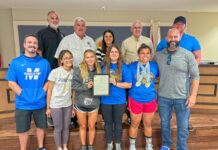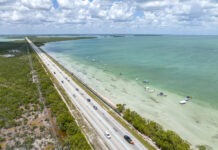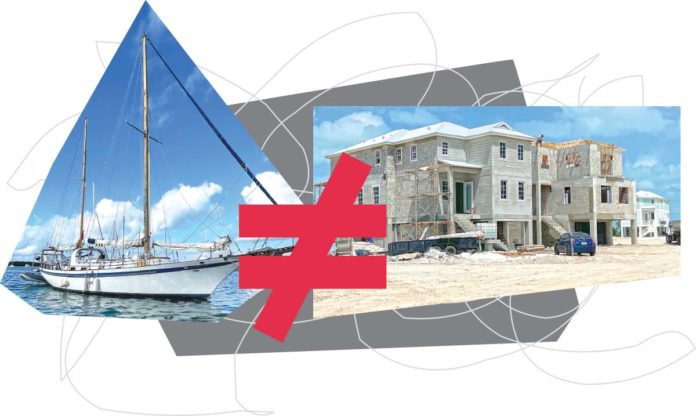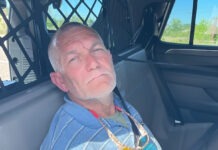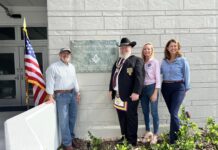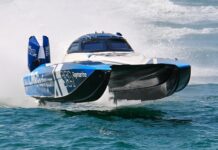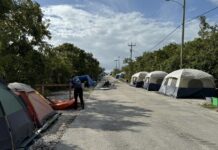A prolonged legal battle centering on the ability to transfer building rights from established live-aboard vessels onto dry land concluded on Oct. 17 with the issuance of a final recommended order from Administrative Law Judge Todd P. Resavage.
The ruling invalidates Marathon’s decision to allow the transfer of building rights from live-aboard boats to a development on land.
The order comes on the heels of a final hearing that concluded on July 13 and 14 for the development known as “Boat Works” at the end of 39th Street Ocean in Marathon. The two-day hearing revolved around whether or not Marathon’s land development regulations (LDRs) and comprehensive plan allows the use of dwelling units associated with live-aboard boats formerly docked at the property’s marina as a way to establish building rights that could then be transferred upland and used to develop site-built homes on dry land on the same property.
In development orders for the property approved by the City of Marathon (Resolution 2021-105, adopted on Nov. 9, 2021), building rights for eight of the development’s 20 market-rate waterfront homes were sourced in such a manner, prompting an appeal by the Florida Department of Economic Opportunity (DEO).
Marathon proceeded to issue building permits for the market-rate homes with rights unaffiliated with the live-aboard vessels, prompting DEO to issue a Notice of Violation (NOV) and revoke the city’s long-standing Memorandum of Understanding (MOU) that allowed for city issuance of less significant building permits without state oversight.
“(Resavage) finds that the language set forth in … the LDRs is clear and unambiguous,” the ruling reads. “The transfer of density and building rights is limited to transfers from one parcel of land to another. Accordingly, the undersigned finds that the Resolution is inconsistent with sections 107.13, 107.14, 107.15 and 107.19 of the LDRs.”
In a section titled “Procedural Inadequacy,” the final order also determines that Resolution 2021-105 was not brought to two public hearings as required by law.
The 2021 resolution was intended to remedy an incorrect version of Resolution 2020-92 sent by city staff to the state in December of 2020.
In a prior hearing in November 2021, Marathon claimed that the 2020 version of the resolution rendered to DEO did not “accurately reflect the terms and conditions as adopted by the City Council.” As a result, because the city viewed the 2021 resolution as a clerical correction, it was rendered to the state after only one public hearing on Nov. 9.
“Resolution 2021-105 provides several terms and conditions that differ materially from those contained in Resolution 2020-92,” the final order states. “(DEO) has met its burden of proof in establishing that the Resolution was not considered at two public hearings, as required by … the LDRs.”
Though the ruling is undeniably problematic for Boat Works, language contained in the document may prove helpful for locals in more than 20 appeals filed by DEO over the past six months. The number of existing market-rate and affordable dwelling units at the site – which contains a 52-unit affordable housing building in addition to the waterfront homes – at various points since 2006 has quickly morphed into a recent bone of contention between the city and state. The lack of consensus has resulted in far-reaching effects as Marathon residents battle appeals of a large group of subsequent permits and building rights transfers that trace back to the Boat Works project.
The most recent ruling should prove advantageous for the additional appeals as it clearly establishes that “the Boat Works property ultimately consisted of the rights to build 52 dwelling units. At all times, these rights were confirmed by Marathon and (DEO).” The order references 2006 and 2007 requests by Boat Works to develop the property. At that time, “the property was acknowledged to have 52 dwelling units and 34 wet boat slips,” a declaration that was not contested by DEO.







